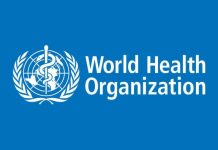– Sets for Nationwide GMP Inspection of 614 Herbal Medicine Facilities

As the usage of herbal medicines is gaining more grounds in the country, the National Agency for Food and Drug Administration and Control (NAFDAC) has showed concerns over the hygiene levels and other areas in the preparation of herbal products, as it drew practitioners attention to the affected aspects of the production.
Director General, NAFDAC, Prof. Mojisola Adeyeye, raised this issue at the weekend, while disclosing the strategic plans of the agency to raise the standard of herbal medicine practice to a greater height, where products would be globally acceptable and competitive in the international market.
For practitioners to comply with Good Manufacturing Practices (GMP) she said the agency is set to deploy officers to 614 herbal medicines production facilities in the country, for inspection and training, after which any organisation that defaults will be sanctioned.
According to the DG ” In herbal production, the level of hygiene is not so high. We have been telling those facilities that we visited that they needed to do something about their filling”.
She identifies capsule filling as one aspect of their operations that has posed a big challenge. Admitting that sometimes the herbal medicines are in capsules or syrup, she said, they don’t have an automated filling machine for capsules.
She noted that the manual method is not safe, warning that after December, the agency would not register any company without the semi-automated or automated capsule filling machines. She stressed that a lot of people are using herbal. ” The earlier we raise our standard the better for us”.
” The Guidelines for the Good Manufacturing Practice in herbal medicine production has been prepared by the agency”, she said, adding that the agency is working on a series of training for the practitioners to get them accustomed to the guidelines.
Prof. Adeyeye further hinted that officers of the agency would thereafter commence vigorous inspections of facilities to ascertain the level of preparedness of the herbal practitioners in the business after the training.
Based on the training they will receive, she said “We will be able to make sure that they follow the guidelines to the letter”, stressing that the agency would pass down the knowledge of the guidelines to the over 614 herbal medicines facilities in Nigeria.
The DG explained that the facilities have been divided into zones, with the agency staff across the federation to be deployed for the exercise.
” In the Southwest, our staff in Lagos, Ibadan, and Ogun will be deployed for the exercise. Likewise, people in the North, Southsouth and other zones”, she said, noting that deploying NAFDAC staff in each zone for the job would reduce the cost on the agency.
Prof Adeyeye disclosed that the stakeholder’s training will start with Lagos which has over 317 facilities, noting that ”We can’t enforce the rules when we have not taught them what to do”.
She said after the training the herbal practitioners would be given about a month or two to get themselves ready before the agency’s staff visit them for inspection, adding that anyone who is not functioning well will either have his facility shut or placed on hold.
Giving an insight into the GMP guidelines, Prof Adeyeye said It will help the practitioners to know how to run their manufacturing plant, adding that the guideline talks about personnel, qualifications of the personnel amongst others.
” Herbal manufacturing GMP requires that the personnel be qualified, and the building be constructed to specific standards. The floor, walls, and roof must be clean, smooth, and impervious to moisture. All these are required to make contamination impossible.”
Prof. Adeyeye said that the guidelines emphasized the need for hygiene, adding that the guidelines also talk about the premises. How the premises should be, insisting that “We want a building that will make contamination impossible”.










